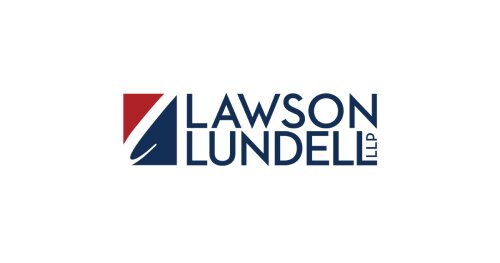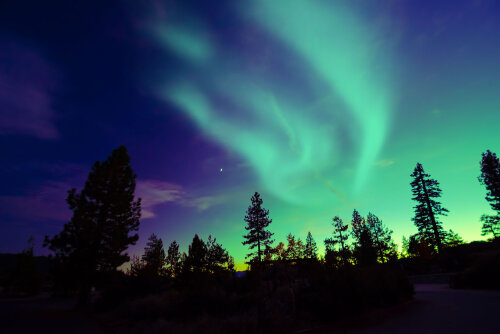Best Natural Resources Lawyers in Yellowknife
Share your needs with us, get contacted by law firms.
Free. Takes 2 min.
List of the best lawyers in Yellowknife, Canada
About Natural Resources Law in Yellowknife, Canada
Yellowknife, the capital city of Canada's Northwest Territories, is a region rich in natural resources, including minerals, forestry, water, and oil and gas reserves. Natural resources law in Yellowknife involves the governance, extraction, conservation, and management of these resources. This field of law is critical for ensuring sustainable development while balancing economic benefits and environmental stewardship. The legal framework governs how resources are utilized, the rights of various stakeholders, and the resolution of disputes arising from resource use.
Why You May Need a Lawyer
There are several scenarios where you may require legal assistance in the field of natural resources in Yellowknife:
- Mineral Rights: Navigating the complex regulations related to mining claims and understanding your rights and obligations.
- Environmental Compliance: Ensuring your business complies with environmental laws to avoid penalties and legal actions.
- Land Use Disputes: Resolving conflicts over land use, including disputes involving indigenous land claims.
- Regulatory Approvals: Assistance with obtaining necessary permits and licenses for resource extraction and exploration.
- Contract Negotiations: Drafting and negotiating contracts related to resource development and extraction.
- Liability Issues: Managing liability issues related to environmental damage or breaches of regulations.
Local Laws Overview
The legal framework governing natural resources in Yellowknife is shaped by both federal and territorial laws. Key aspects include:
- The Northwest Territories Waters Act: Regulates the use of water resources, including licensing and water management practices.
- The Mackenzie Valley Resource Management Act: Oversees land and water management, including environmental assessments and land use planning.
- Indigenous Land Claims Agreements: Agreements with indigenous communities that affect resource development and land rights.
- Environmental Protection Acts: Legislation covering pollution control, wildlife conservation, and sustainability practices.
- Mining Regulations: Rules that govern mineral exploration, claim staking, and extraction procedures.
Frequently Asked Questions
What are the main natural resources found in Yellowknife?
Yellowknife is known for its rich deposits of gold, diamonds, and other minerals. The area also has significant lakes and forests.
Can anyone stake a mining claim in Yellowknife?
The ability to stake a mining claim depends on compliance with both local and federal regulations, and obtaining the necessary permits from the territorial government.
How are indigenous land rights protected in natural resource projects?
Indigenous land rights are protected through comprehensive land claim agreements and consultation processes required by law for any resource development projects.
What is involved in an environmental assessment?
An environmental assessment evaluates the potential impacts of a proposed project on the environment and recommends ways to mitigate adverse effects.
Are there specific regulations for water usage in mining operations?
Yes, mining operations must comply with the Northwest Territories Waters Act, which regulates water use and requires specific licenses for any water-related activities.
What is the penalty for non-compliance with environmental regulations?
Penalties can range from fines and legal action to the revocation of permits and licenses, depending on the severity of the infraction.
How can I find out if a piece of land is held under a claim or lease?
Information about land claims and leases can be obtained from the Mining Recorder's Office or through the territorial government's website.
Do I need a lawyer to obtain a natural resource permit?
While not mandatory, a lawyer specializing in natural resources can help navigate the complex application processes and ensure compliance with all regulations.
What role does the government play in resource management?
The government oversees resource management through legislation, regulation, and enforcement, as well as facilitating stakeholder engagement and dispute resolution.
How do I address a dispute over resource rights?
Disputes can be resolved through negotiation, mediation, arbitration, or court proceedings, often with the assistance of a lawyer experienced in natural resources law.
Additional Resources
Several resources and organizations can provide support and information:
- The Northwest Territories Geological Survey: Offers detailed geological information and mineral exploration support.
- Indigenous and Northern Affairs Canada: Provides resources and guidance on indigenous rights and land claims.
- NWT & Nunavut Chamber of Mines: A resource for information about mining regulations and industry developments.
- Environment and Natural Resources Department: Oversees environmental protection and resource management in the Northwest Territories.
Next Steps
If you need legal assistance in natural resources, consider the following steps:
- Identify your specific legal needs and the nature of your concern or project.
- Research lawyers or law firms in Yellowknife that specialize in natural resources law.
- Schedule consultations to discuss your case and assess the lawyer's expertise and approach.
- Gather all relevant documentation and information related to your issue.
- Consider seeking additional advice from governmental bodies or industry associations.
Lawzana helps you find the best lawyers and law firms in Yellowknife through a curated and pre-screened list of qualified legal professionals. Our platform offers rankings and detailed profiles of attorneys and law firms, allowing you to compare based on practice areas, including Natural Resources, experience, and client feedback.
Each profile includes a description of the firm's areas of practice, client reviews, team members and partners, year of establishment, spoken languages, office locations, contact information, social media presence, and any published articles or resources. Most firms on our platform speak English and are experienced in both local and international legal matters.
Get a quote from top-rated law firms in Yellowknife, Canada — quickly, securely, and without unnecessary hassle.
Disclaimer:
The information provided on this page is for general informational purposes only and does not constitute legal advice. While we strive to ensure the accuracy and relevance of the content, legal information may change over time, and interpretations of the law can vary. You should always consult with a qualified legal professional for advice specific to your situation.
We disclaim all liability for actions taken or not taken based on the content of this page. If you believe any information is incorrect or outdated, please contact us, and we will review and update it where appropriate.









